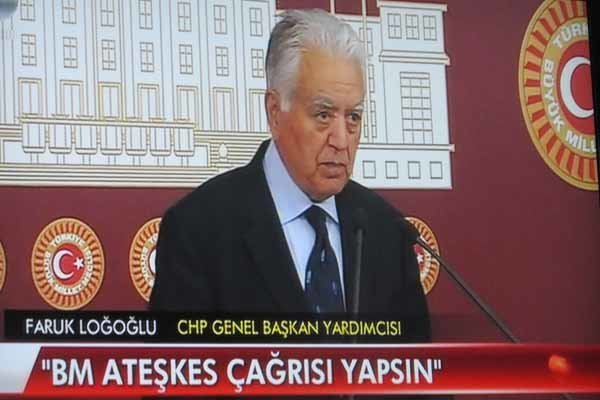‘U.S. withdrawal from Syria will likely bring to surface differences between Astana partners’

TEHRAN - Commenting on the U.S. dissatisfaction with increased cooperation of Iran, Russia and Turkey, Member of Turkey’s CHP says U.S. withdrawal from Syria will likely bring to surface differences between Astana partners
During Turkish President’s recent visit to Moscow, Russian President Vladimir Putin has suggested a long-forgotten security treaty between Turkey and Syria should be resuscitated, effectively pressing Turkish President Recep Tayyip Erdogan to cooperate with Damascus that Ankara opposes.
It seems that Erdogan has not gotten much out of this summit with regard to Turkey’s expectations in Syria. He had traveled to Moscow to discuss northern Syria in the wake of President Donald Trump’s decision to pull out U.S. forces from the area. He also hoped to not only get a green light for a cross-border Turkish operation east of the Euphrates against the U.S.-backed YPG but also to seek support for a Turkish security zone in the region.
Some analysts believe that the U.S. intends to affect good cooperation between Russia, Turkey, and Iran in Syria by pulling out its forces from the north of Syria. Commenting on this idea, Dr. Osman Faruk Logoglu a senior member of Turkey’s Republican People's Party (CHP) said, “The last thing the U.S. would want to see is increased cooperation anywhere between Turkey, Iran, and Russia. For the U.S. national defense strategy, Russia is a “revisionist” power and Iran is an “evil” state, both hostile to American interests. The withdrawal of U.S. troops from Syria is a decision by President Trump that is opposed by the Pentagon and even by NSA Bolton. It will, therefore, be difficult to implement fully anytime soon. Even if and when implemented, the troop withdrawal would not mean the end of U.S. presence or interest in Syria. American support to PYD/YPG is to continue. The withdrawal decision, on the other hand, is now likely to bring to surface the underlying differences between the three Astana partners. Russia and Iran support Assad, Turkey is still opposed to Assad. The situation in Idlib is not proceeding to Russia’s satisfaction. And both Iran and Russia probably oppose any new military operations in Syria.”
Nowadays we see that Russian President tries to revive former cooperation between Turkey and Assad’s government. From the other side the U.S. is trying to sanction the countries that work with Assad government by adopting new laws in the country’s congress. Turkey also needs the Russians green light to create the safe zone in northern Syria despite U.S. has agreed with it.
Referring to the issue and the way that Turkey is going to How Turkey is going to manage it in order to tackle its concerns, Logoglu added, “To create a safe zone in the North of Syria, one needs to have at least one of two conditions in place. One is a formal invitation by the Government of Syria. The other is a resolution of the UN Security Council. Neither is the case for the north of Syria. Any safe zone established in the absence of either of these prerequisites would lack legitimacy. Turkey and Syria have signed two agreements of cooperation to fight terrorism: one in 1998 the Adana MOU and the 2010 Ankara agreement. Both continue to be in force. Therefore, for Turkey to meet its legitimate security concerns, the best way is to open channels of dialogue with the Syrian administration and to reactivate these agreements. At the end of the day, the best and lasting guarantee for Turkey’s national interests and security is a peaceful, stable, territorially integral Syria.”
Leave a Comment